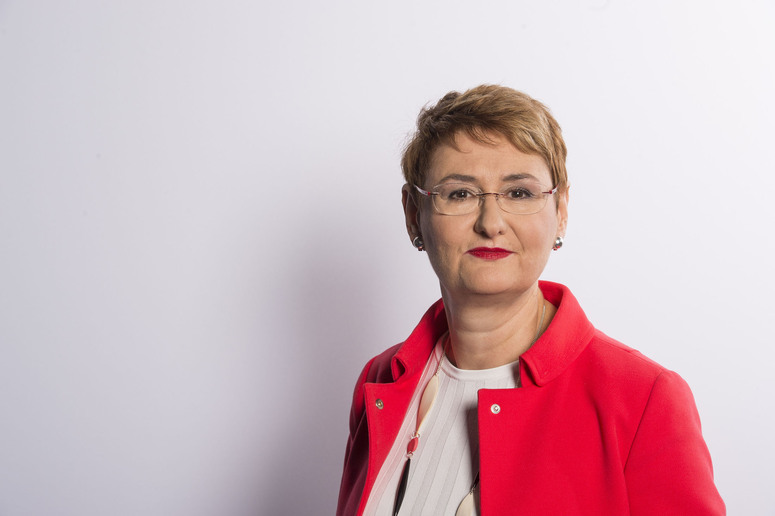Scenarios of intense NATO military exercises indicate that the alliance is intentionally preparing for a large-scale conflict. The statement was made by Valery Gherasimov, chief of the General Staff of the Armed Forces, wich was quoted by Krasnaya Zvezda.
In a briefing with the participation of foreign press attaches, Gherasimov recalled that the doctrinal documents of Brussels give Russia the status of adversary, and during the December NATO summit, it was stated that the operative transfer of consolidation forces to the “eastern flank” of the alliance has grown significantly.
At the same time, the Chief of the General Staff expressed his confidence in the need to continue the dialogue with the Alliance in order to reduce the risks of dangerous military incidents. He recalled that on the backround of increasing NATO activism, Western allies are simultaneously promoting the thesis of the so-called “Russian military threat”.
What does NATO say?
On December 16, NATO spokesperson Oana Lungescu told Redaktionsnetzwerk Deutschland that NATO is increasingly identifying Russian submarines this year on the Atlantic Ocean. Lungescu claims that in 2019 the Russian submarine fleet under the Atlantic Ocean waters proved to be the largest since the Cold War.
Only in October, up to ten submarines were observed simultaneously during a Russian underwater operation near Norway,
says Oana Lungescu, quoted by IPAH

says spokeswoman.
NATO is already preparing a response to the Kremlin’s actions. For example, the number of naval and air patrols in the North Atlantic is planned to increase. This region is extremely important for the security of Europe, because here are trade routes and military supply channels,
A special concern for NATO is also the fact that Russian submarines could damage the Internet cables connecting Europe and the US.
During the same briefing, the chief of the General Staff said that since 2016, NATO members have increased total defense spending by $ 130 billion, and by 2024 an increase of this figure by $ 400 billion is expected. Moreover, in order to ensure dominance in the cosmos, it was decided to recognize the cosmic space as a separate sphere of military actions, alongside land, air, sea and cyberspace.
Romanian foreign policy analyst Iulian Chifu told IPAH that Gherasimov’s message could not be read, except in terms of the need for the Russian Army Chief of Staff to deliver to the Russian public the existence of threats and the need for further investments in the military area.
Here, in fact, is the great problem of Serghei Gherasimov: the commitments in the military area that are absolutely excessive, are not on the other side countered by a similar investment. Even the commitments made are not fulfilled, because the economic situation of the Russian Federation is not one of the best,
says Chifu
The Bucharest analyst believes that the term “large-scale conflict”, pronounced by Gherasimov, would mean a war taken by NATO. At the same time, Chifu is of the opinion that the statement of the chief of staff is purely propagandistic.
Widespread conflict means war. War means the engagement of all categories of force. This is not a limited conflict, not a clash, not an incident, not an element of unbridled hybrid warfare, but widespread war. It means a war and the start of a conflict with all the categories of force of a state or an alliance in the present case. Obviously, Mr. Gherasimov’s statement is purely propagandistic for two reasons: first, the North Atlantic alliance is a purely defensive alliance. Such a scenario is absolutely unimaginable and difficult to sustain, including through propaganda statements in Moscow. The only large-scale war for NATO to prepare, in Gherasimov’s view, is a strict defense,
says Chifu
Why the crisis deepened?
Relations between Russia and the West have worsened following a series of events:
Russia’s annexation of Crimea in 2014, alleged intervention in the US elections in 2016, and the assassination plot against Sergei Skripal in the UK have sparked a diplomatic crisis between the Kremlin and Washington.
The 1987 Pact, signed by Mikhail Gorbachev and Ronald Reygan, on Intermediate Nuclear Forces prohibits the use of ballistic missiles with a range of 300 and 3,400 kilometers.
But Washington later accused Moscow of violating the treaty and producing illegal rocket launches.
Earlier this year, the US tested Navy Tomahawk, a modified version of a cruise missile, which would have been banned under the treaty.
Putin urged Defense chiefs to “take comprehensive measures to prepare a decent response.”
European leaders have voiced their concerns about the consequences of violating the treaty, saying that a new arms race has not been seen since the Cold War.
[1] https://www.dailymail.co.uk/news/article-7805875/Russias-general-warns-NATO-preparing-large-scale-military-conflict.html
[2] https://ria.ru/20191218/1562517398.html?in=t
[3] http://redstar.ru/ministerstvo-oborony-rf-otkryto-k-ravnopravnomu-dialogu-po-voprosam-obespecheniya-voennoj-bezopasnosti/
[4] https://www.rnd.de/politik/putins-u-boote-grosste-aktivitaten-seit-ende-des-kalten-krieges-GI7P43TGBFDBNG5YVKWPQVIGOI.html
[5] https://www.thetimes.co.uk/article/nato-is-preparing-for-war-says-russias-top-general-7cph9t7tp


